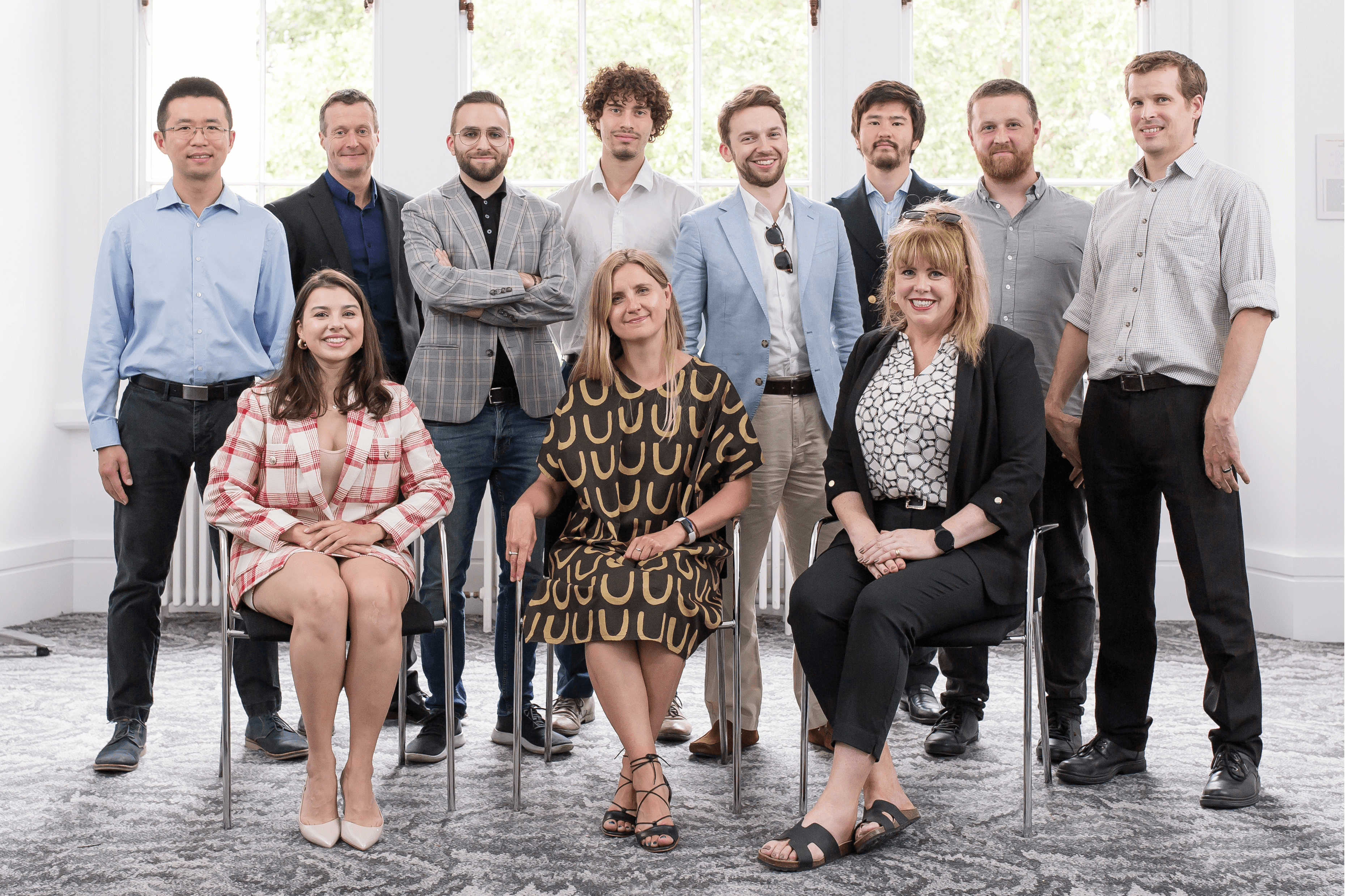We're excited to introduce 12 graduates and researchers on their journey to startup and spinout success with Enterprise Fellowships. They're on track to commercialise novel inventions that tackle food waste, improve imaging for cardiovascular health and automate live music mixing, and many other spheres.
Enterprise Fellowships has been running since 2011, supporting graduates of undergraduate degrees and PhDs, as well as academics at all levels. This accelerator programme consists of fifteen days of training, which is complemented by six months of support from a business coach. Alongside this, the entrepreneurs benefit from a full year of one-to-one mentoring from a leading expert in engineering and tech startups and spinouts.

First cohort for Enterprise Fellowships in 2023, with Angus Baker, Senior Programme Manager, and Urszula Stawik, Programme Manager.
Meet the cohort
The next round of Enterprise Fellowships will open in July 2023. Visit the programme page for more information and how to apply.
Notes for Editors
- The Enterprise Hub was formally launched in April 2013. Since then, we have supported over 350 researchers, recent graduates and SME leaders to start up and scale up businesses that can give practical application to their inventions. We’ve awarded over £11.3 million in grant funding, and our Hub Members have gone on to raise over £1.3 billion in additional funding.
- The Royal Academy of Engineering is harnessing the power of engineering to build a sustainable society and an inclusive economy that works for everyone.
In collaboration with our Fellows and partners, we’re growing talent and developing skills for the future, driving innovation and building global partnerships, and influencing policy and engaging the public.
Together we’re working to tackle the greatest challenges of our age.
For media enquiries please contact: Chris Urquhart at the Royal Academy of Engineering Tel. +44 207 766 0725, email: [email protected].
